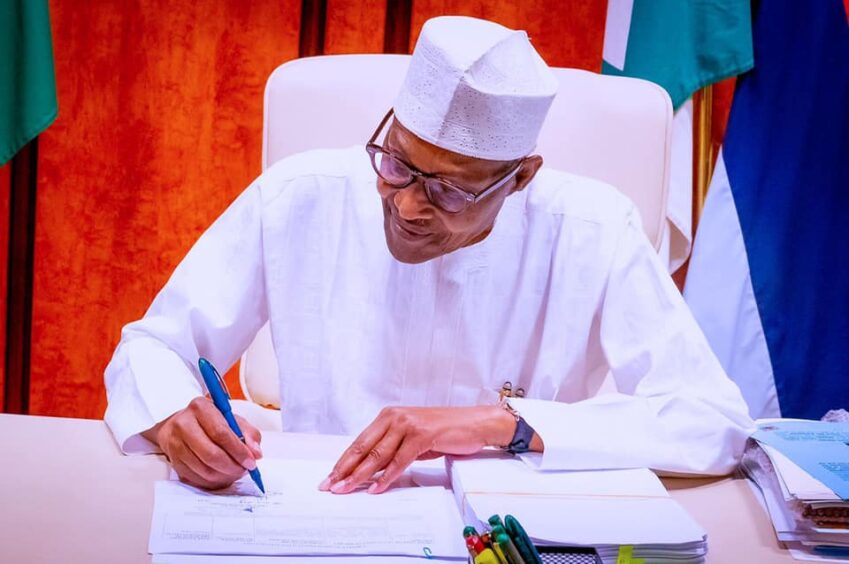
Nigeria is the largest economy in Africa, with the government highly dependent on oil revenues. As such, Nigerian National Petroleum Corporation (NNPC) is crucial to the country and the state.
In August 2021, Nigerian President Muhammadu Buhari approved the new Petroleum Industry Act (PIA). This marked the first full reform of the legal structure governing the nation’s oil industry since the 1960s. The new legislation follows pressure from major companies operating in the country, urging that reforms were needed to stimulate investment into its oil and gas sector alongside renewable resources as a part of the energy transition.
The reforms aim to ensure the wealth of Nigeria’s energy resources are better shared for the benefit of its wider population. In order to go about this, it includes an amended royalties and fiscal tax regime.
The PIA also aims to increase transparency and accountability in the sector by strengthening the governing institutions and attracting international investment through changes to the governance, administrative, regulatory and fiscal framework of the industry.
A crucial part of the reforms involves the transfer of assets and liabilities from NNPC to a limited liability corporation (NNPC Limited). This could have a significant impact on the way in which oil and gas projects are funded in Nigeria and could open up the pool of investors.
Aside from the industry-standard co-venturing approach, Nigeria also receives loan investment into its oil and gas industry, a significant part of which is Nigeria’s circa $10 billion debt owed to the World Bank since 2017. The loan terms include a negative pledge over Nigeria’s public assets, which prevents foreign investors from receiving security from the government in priority to the World Bank.
The negative pledge effectively prevents “standard” project development financing by oil and gas investors as it inhibits the ability to take a “typical” level of security, which would typically rank in priority to other creditors. This has historically been seen as counter-productive as it limits the potential for long-term investment for growth in the petroleum sector, which would increase revenues and enhance the ability for Nigeria to repay its debt.
To get around these restrictions, investors have sometimes resorted to structuring their financing arrangements to accommodate the World Bank pledge.
One method of doing this is to use a forward sales arrangement, whereby each US dollar financed by the foreign investor is made to a non-state owned special purpose vehicle (SPV). The SPV purchases oil from NNPC, in its capacity as an owner of the relevant assets, and then sells that oil to approved off-takers. The funds from these sales are then used to reimburse the investor.
New opportunities
The PIA clearly aims to set a new course for NNPC’s future. It states that “NNPC Limited and any of its subsidiaries shall conduct their affairs on a commercial basis without recourse to government funds and their memorandum and articles of association shall state these restrictions.”
By ensuring that NNPC Limited maintains the standards expected from a privately owned commercial entity, the Nigerian government hopes it will attract new investors and open new channels for raising financing.
Although NNPC Limited will continue to be government-owned and subject to the World Bank’s restrictions, with its shares remaining non-transferable (without the government’s consent), its assets will now be ringfenced in a new commercial vehicle. This may make it a more palatable counterparty for foreign investors.
Lenders may be more willing to lend directly to NNPC Limited, securing their debt with lower-ranking security against the shares in this new entity, potentially in exchange for a higher interest rate for repayment.
The Nigerian government will also have multiple options for monetising NNPC Limited, including accessing the international debt and equity capital markets and partial sell-downs of the company’s shares. The prospect of owning a stake in NNPC Limited would invariably pique the interest of sovereign wealth funds and private equity houses that traditionally invest in oil and gas.
Introducing sovereign immunity waivers in any contracts with the company, as well as opening up the possibility of deploying international arbitration to resolve any disputes, would further ease the concerns of international investors.
There’s a high level of commercial rationale behind these new changes. Like many oil-dependent nations, Nigeria has been adversely affected by the rollercoaster of the crude oil price and its ambitions to diversify its economy will require time and a lot of investment.
In the short- to medium-term it will need to pull out all of the stops to continue encouraging investment into its oil and gas industry, which will allow Nigeria to start building towards future long-term sustainability.
Matthew Culver, Partner at law firm CMS, with added input from David Rutherford, Senior Associate and Firas Albani, Associate.
 © Supplied by CMS
© Supplied by CMS